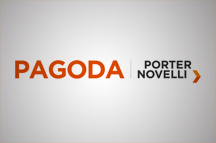 There is no doubting the positivity of Willie Rennie. Despite the struggles of the Lib Dems, he genuinely looks like someone who relishes his role as leader in this election campaign.
There is no doubting the positivity of Willie Rennie. Despite the struggles of the Lib Dems, he genuinely looks like someone who relishes his role as leader in this election campaign.
The upbeat approach was clear at the party’s manifesto launch in Edinburgh on Friday where the Lib Dems focused on tax pledges and an additional investment of £500m into education. A penny on income tax to pay for our children’s education? Why not. To paraphrase David Ginola, “they are worth it”. However, the problem for the Lib Dems is that most of the parties seem to think they are worth it: The Greens have put tax rises and investment in public services at the centre of their manifesto; Labour has committed to income tax rises of over £1bn to invest mostly in education; and the SNP, the party everyone is running against, has made its priority closing the attainment gap in schools.
So how do the Lib Dems, who are still struggling for credibility with the electorate after the coalition years, use this policy to make an impact, given the range of choices available to voters? The truth is they probably can’t.
 Smaller parties win by being bold, by not just differentiating themselves from the government but also from the remaining opposition (like Ruth Davidson). More money for schools or investment in mental health (another liberal priority) may be good policies, but they probably aren’t enough.
Smaller parties win by being bold, by not just differentiating themselves from the government but also from the remaining opposition (like Ruth Davidson). More money for schools or investment in mental health (another liberal priority) may be good policies, but they probably aren’t enough.
And yet there are policies in their manifesto that could allow for that message differentiation.
Calling for all prison sentences of less than 12 months to be replaced with community service, decriminalising prostitution and taking a softer line on personal drug use won’t win the Lib Dems the election, nothing will. But moving the debate onto more traditional liberal issues, where they have something distinct to say from the SNP, Labour and Conservatives, may make the difference between ending up with 2 and 10 MSPs on the morning of May 6th. And, as they are no longer forced to defend the coalition government, what do they have to lose?












